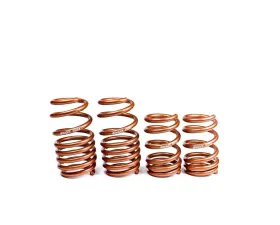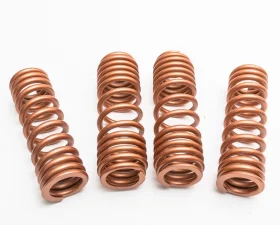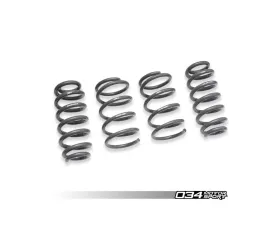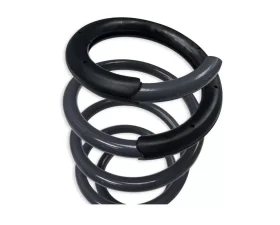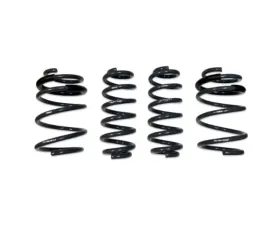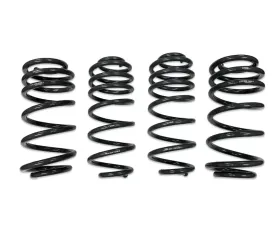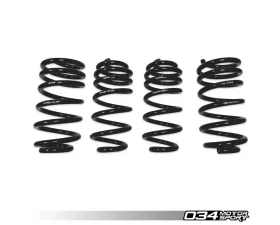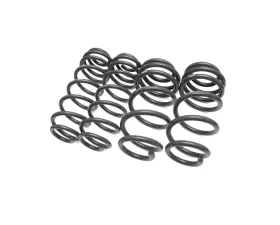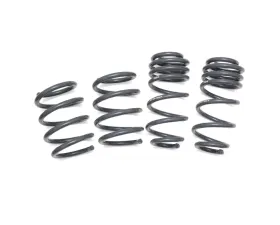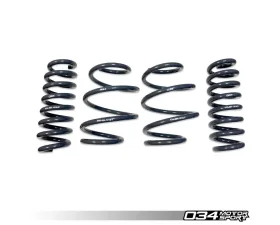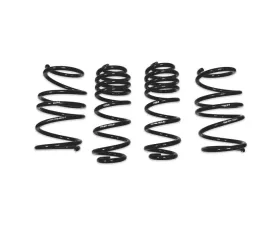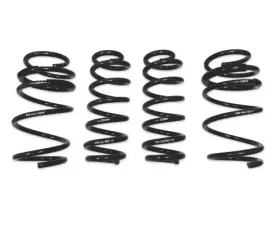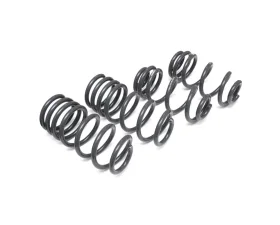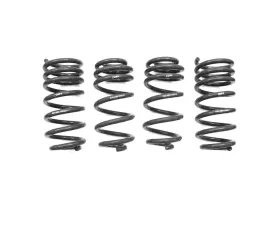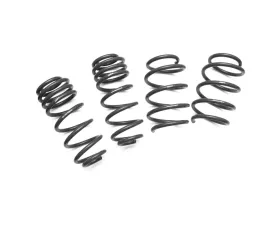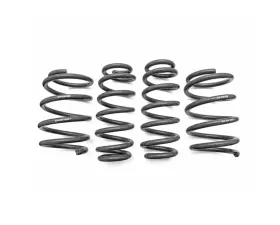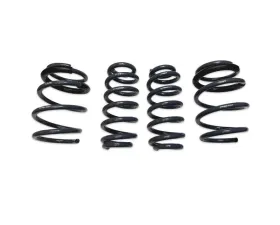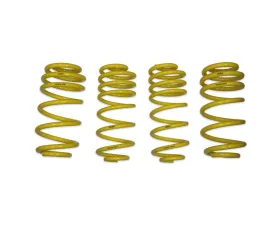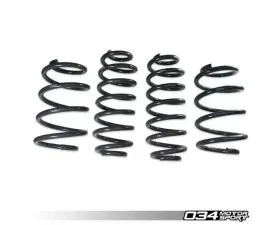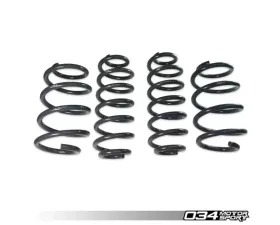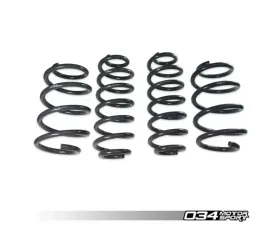Springs
Springs for Enhanced Performance and Comfort at Vivid Racing. Discover a wide selection of high-quality springs designed to improve your vehicle's handling, ride quality, and overall performance. At Vivid Racing, we offer a variety of springs suitable for various makes and models, ensuring you find the perfect fit for your automotive needs. Upgrade your suspension system today for a smoother and more responsive driving experience!
VRP Lowering Springs Lamborghini Huracan | Huracan EVO | Performante
034 Motorsports Dynamic Plus Lowering Springs for Audi RS3 2012-2020, Improved Handling
034 Motorsports Dynamic+ Coil Spring Sleeves for Audi & Volkswagen, 0.500" Wire Diameter
034 Motorsport Dynamic+ Lowering Springs Audi A3 | S3 (Non-Magride) 2015-2020
034 Motorsports Dynamic+ Lowering Springs for Audi A5/S5 B8/B8.5 2008-2017 - 1.5" Front, 1.25" Rear
034 Motorsports Dynamic+ Lowering Springs for Audi Q5/SQ5 B8/B8.5 & Porsche Macan 2009-2021
034 Motorsports Dynamic+ Lowering Springs for Audi RS5 B9/B9.5 2018-Present, 0.75" Drop
034 Motorsports Dynamic+ Lowering Springs for Audi S4 B8/B8.5 2010-2017, 1" Drop
034 Motorsports Dynamic+ Lowering Springs for Audi SQ5 B9/B9.5 2018-2025, 2.28" Front Drop
034 Motorsports Dynamic+ Lowering Springs for Audi TT RS | TTS 2016-2023, 0.8" Front Drop
034 Motorsports Dynamic+ Lowering Springs for Volkswagen GTI MK8 2020+, Improved Handling
034 Motorsports Dynamic+ Lowering Springs for Volkswagen Golf R MK8 2020-2023
034 Motorsports Dynamic+ Lowering Springs for Audi A4/Allroad B9 (2017-2022)
034 Motorsports Dynamic+ Lowering Springs for Audi S4 (B9) 2018-2023 & S5 (B9) 2017-2023
034 Motorsports Dynamic+ Lowering Springs for 2015-2020 Volkswagen Golf R MkVII
034 Motorsports Dynamic+ Lowering Springs for 2015-2023 Volkswagen Golf/GTI MkVII
034 Motorsports Dynamic+ Lowering Springs for 2015-2017 Audi A3/S3 Quattro with Magnetic Ride
034 Motorsports Dynamic+ Lowering Springs for Audi RS3 2023-2025, 1" Front, 0.75" Rear
034 Motorsports Dynamic+ Lowering Springs for Porsche Macan 2.0T 2014-2020, 2.5"-3.5" Drop
034 Motorsports Dynamic+ Lowering Springs for Audi A3 8P 2.0T 2006-2013, 30mm Front, 20mm Rear
034 Motorsports Dynamic+ Lowering Springs for Audi A3 8P 3.2 VR6 2006-2008, 1.18" Drop
034 Motorsports Dynamic+ Lowering Springs for Audi Q3 2.0T 2012-2018 - 1.57" Lowering

What are Coil Springs?
Springs are vital to vehicles because they support the weight of your car and allow it to remain stable even in rough driving conditions. They have the ability to expand when you hit dips on the road and compress when you encounter bumps or cut into hard corners.
Springs are basically energy storage devices. They are designed to absorb shock loads sent to the wheels and store them as potential energy through compressing. When able, the spring will decompress, where the potential energy is now released as kinetic energy, pushing the wheel down. While your car is on the ground, its weight compresses the springs, so any drop in the road surface will result in the spring pressing the wheel down to contact the ground. As you travel, your vehicle will come across plenty of bumps in the road - and it's a coil spring's job to make sure you hardly feel the effects. Over time, coil springs can lose their elasticity. This happens with general wear and tear, and for the most comfortable ride possible it's best to replace them.
A damaged spring can be a massive safety issue, since a broken piece of spring can deflate a tire or get tangled up with other suspension components. Depending on how the spring breaks, it could have enough for to shoot out of your vehicle fender well and damage your fender or bumper. On top of that, it can fall on the road and bring about unwanted risk to other drivers and people on foot.
Also, while o the subject of springs, it is good to know about spring rate. Spring rate is the measurement of how much a coil spring can hold until it compresses 1 inch. The spring rate is normally specified by the manufacture. If a spring has a rate of 100 then the spring would compress 1 inch with 100lbs of load.
Together with a shock absorber, coil springs are pre-assembled as one coil over unit before installation. While the coil spring compresses and stretches to keep you safe as you drive, the shock absorber keeps you from road noise, bumps, and vibrations that you might encounter while doing so. All in all, a coil over is essential in your vehicle's suspension because it gives you optimal damping, good handling and braking, and a comfortable ride all at the same time.
Why should I upgrade my springs?
In the never-ending quest for style and performance, one of the main ways to increase both is by lowering your ride with coilovers or springs. Not only do lowered vehicles look more aggressive, but when you decrease your ride’s height a few inches, you’re also increasing some of the handling benefits.
Like your factory springs, lowering springs are made to support the weight of the vehicle and fit nicely in place of the originals with little to no modification necessary – simply remove the old springs and swap in the new. Lowering springs are one of the most basic components of a suspension system. As the name suggests, they are meant to lower your vehicle from its original height. Your vehicle’s suspension might already have springs pre-installed in it. However, lowering springs will be a few inches less taller than the stock springs.
An important thing to keep in mind when you install lowering springs is to avoid the rubbing. If your vehicle starts rubbing after the installation of lowering springs, you want to replace them with stiffer ones. Lowering springs can easily go with stock shocks but experts always advise coupling them with performance shocks to make the most of them.
With lowering springs, your vehicle’s center of gravity is much lower and most lowering springs have a much higher spring rate than your OEM springs. Thanks to their vehicle affordable price, lowering springs are one of the easiest ways to improve your vehicles handling characteristics.
Buy online or give one of our world-class professionals a call at 1-480-966-3040.

.jpeg?q=90&p=thumb&w=200&h=200)
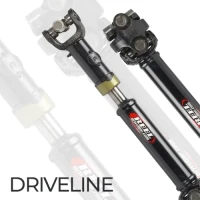
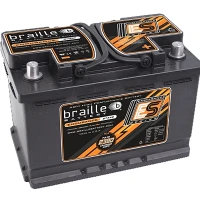
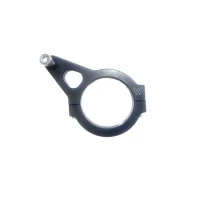




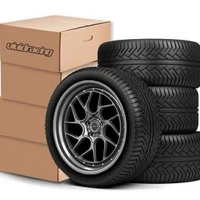

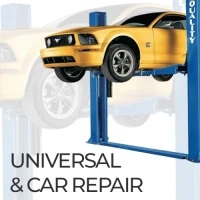
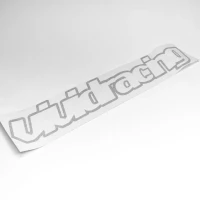
.jpeg?q=90&p=thumb&w=40&h=40) Brakes
Brakes  Driveline
Driveline  Electronics
Electronics  Handlebars & Controls
Handlebars & Controls  Package Deals
Package Deals  Wheel Accessories
Wheel Accessories  Wheels by Vehicle
Wheels by Vehicle  Tools and Maintenance
Tools and Maintenance  Universal & Repair
Universal & Repair  Vivid Racing Gear
Vivid Racing Gear 